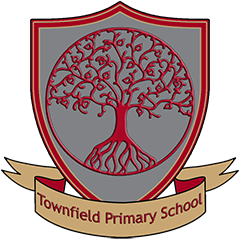Spelling
Spelling Curriculum
The Read Write Inc. Spelling programme provides structured, systematic teaching and this is why we have chosen this scheme in our approach to the discrete teaching of spelling.

The RWI Spelling programme allows children at Townfield to:
- Meet the spelling expectations of the National Curriculum 2014
- Spell new words correctly and have plenty of practice in spelling them, including exception words and homophones.
- Spell words as accurately as possible using their phonic knowledge and other knowledge of spelling, such as morphology [the study of the form of words] and etymology [the study of the origins and the development of words].
- Understand and apply the concepts of word structure
- Spell words that they have not yet been taught by using what they have learnt about how spelling works in English.
RWI Spelling is an interactive programme, which teaches spellings in a fun and engaging way. Each unit is introduced with a short video. It helps children to learn spellings with common patterns and uses rules in order to help them recall spellings, as well as teaching exceptions to these rules.
Individual workbooks allow children to practise their spellings and the teaching naturally follows on from the ‘Spell Review’ part of the RWI phonics programme, which is taught as soon as the children start in Reception. Therefore, the children are already proficient at using dots (for individual sounds) and dashes (for special friends/digraphs) and prefixes and suffixes can be added to root words to help them to spell with greater accuracy, understanding and confidence.
Children in Reception and Year 1 will take part in a daily spelling session as part of their daily RWI lesson. They will learn to spell decodable words (green words) using ‘fred fingers’, as well as the spellings of the required common exception words (red words) for their year group.
As children progress into Years 2 to Year 6, they will have daily spelling sessions. These are important in helping them to practise the spellings they need to learn from each unit. Each unit explains the rules, and gives handy tips and rhymes for remembering these. During the week, the children will log the spellings they found tricky. At the beginning of the next unit, children carry out ‘speed spell’, which will assess their ability to spell words with the previous week’s spelling pattern correctly. Again, they will log any words that were misspelt from this activity. Log books give children ownership of their spellings and allow for further consolidation in other subjects and lessons.
The weekly timetable means that children progress through the programme, and less time is spent on explaining the activities. Children are taught as a whole class for 15 minutes per day.
As part of the programme, Red and Orange words are referred to and taught discretely. Red words are the common exception words for Y1 and Y2 as listed in the National Curriculum in England, plus some high frequency words with unusual spellings. Orange words include all the words on the National Curriculum word lists for Years 3 and 4 and Years 5 and 6.
The Practice Books advocate dictionary challenges and dictionaries are available in each classroom. Years 5 and 6 also have thesauruses available to support the spelling of synonyms and antonyms.
Key vocabulary and technical language from subjects across the curriculum are displayed on working walls in classes to aid subject-specific spellings.
Pupils are formatively and summatively assessed in their writing (and spelling) at specific points throughout the year. Summative assessments, known as ‘practice tests’ are carried out three times per year to track progress and measure impact of the spelling programme. Impact of this data also dictates whether intervention groups are required for specific pupils in spelling. Consolidation sessions are also planned for, and provided, for common misconceptions.
Spelling Shed:
Children at Townfield also have access to the Spelling Shed as part of our homework policy. This educational platform enables children to practice their spellings at home in a fun way by earning coins for their honey pot. Teachers monitor childrens' enagagement and progress and celebrate achievements in class. Your child's log in will be provided by their class teacher. Spellings set on Spelling Shed will match the spellings children are practising in class as part of RWI lessons or RWI spelling lessons.


Statutory Spelling Lists:
Each year group has a list of statutory words they must know how to read and spell before the end of the respective year group. You can find below links to these spelling lists and can also download a copy from the documents section below.
Please go through any relevant list(s) with your child. You may also wish to revisit any previous year group lists.
Helping Your Child with Spellings at Home
1. Encourage your child to ‘have a go’
Encourage your child to have a go at spelling a word. This will build confidence and practise spelling skills. Making mistakes is a natural part of learning, and if your child is comfortable knowing that they’re not going to get spellings right all the time, then they will be more likely to try out more adventurous words. Keep positive and upbeat.
2. Keep reinforcing phonics
Remind your child to use phonics as their first port of call for spelling a new word – even in Key Stage 2. Help them to really hear each individual sound in the word and choose a suitable spelling pattern.
3. Check your spelling
Remind children to read through their writing and check for spelling errors. They need to develop a feel for whether a word looks right. Help them to check words in a dictionary.
4. Encourage your child to read
When we read, we see words spelled correctly. The more we read, the more words we see.
 Townfield Primary School
Townfield Primary School